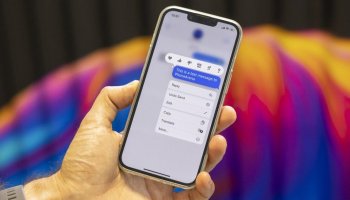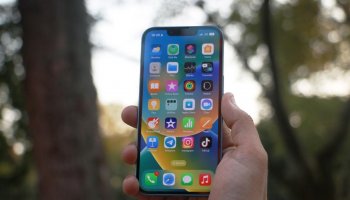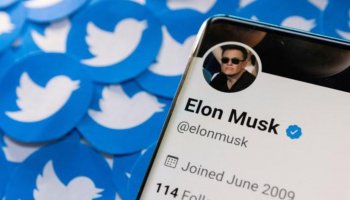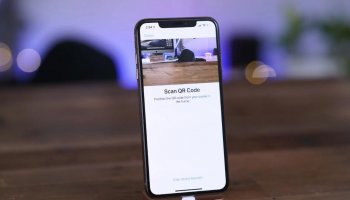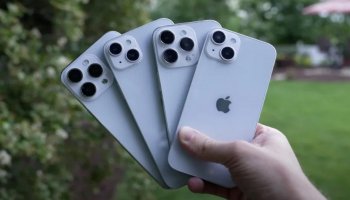If Lynk's interplanetary messaging is approved by the FCC, it may potentially launch before Starlink and Apple
Last month and last week, Apple and SpaceX pre-announced Starlink connectivity

Apple and SpaceX may have gotten all the attention with their big pre-announcements about Starlink connectivity last month and last week. Still, Lynk has been working hard and may very well eat their lunch with a satellite-to-phone connection that already works with any device. They just got approval for it from the FCC. Now, they must find a mobile network partner to bring it to the U.S. market.
With its test orbital cell tower, Lynk showed at the end of last year that it could connect directly from the satellite to the phone (and phone to satellite) in an emergency. Lynk wouldn't be like an orbital broadband connection or an old satellite band where you point your phone at an invisible dot in the sky. Instead, it would use regular cellular bands that reach orbit to provide two-way SMS service every so often (about every half hour). It's meant for emergencies, checking in from the backcountry, and spreading information in places where networks are down, like disaster zones. It's not easy to send or receive a text message from or to an antenna moving at several thousand miles per hour, and CEO Charles Miller said it took them a few years to figure it out. So when big companies say they are working on it, it doesn't make him feel too bad. "That's the good thing about making the tech five years ago: no one else has done many hard things yet. He told me, "I'm not saying they can't. I'm just saying they haven't done it yet." "We proved this was true and got a patent for it in 2017. We did it yesterday and the day before from space. We have the only working cell tower in space."
FCC testing and certification is the 'gold standard'

Even if you had a thousand of them, it wouldn't matter if you didn't have regulatory approval and mobile partners. That's the next step for Lynk. They have 15 contracts in 36 countries worldwide and are getting ready to go commercial, but the United States FCC is the "gold standard" for this kind of testing and validation. That's not just because they have the best facilities; the FCC approval process is also where companies try to mess with each other. Hughes, which runs several communications satellites, objected to Lynk's application for several reasons, which the FCC rejected. Amazon's Kuiper also asked Lynk to share operational data with everyone (not granted). The National Radio Astronomers Organization made a good request that was partially granted. They asked for limits on operation, such as not polluting quiet radio zones.
Lynk intends to expand globally

The FCC is more than just this one step. The order from today says that Lynk's satellite services can run in general because they have shown that they won't mess up other services, radio bands, etc. When Lynk finds a partner to market, it will need separate approval, but the more difficult and time-consuming question of safety and interference has already been answered. And how will that piece go to market? Lynk plans to offer commercial service in other parts of the world, and Miller said he expects to turn testing licenses bought in other countries into commercial ones. This is a process that mobile providers have to lead. The same goes for running a business in the U.S. But who will Lynk's partner be, and what will the service they create together look like? Miller has said that no matter what the commercial product looks like, Lynk will make its emergency services available to anyone, so you won't be stuck in a blizzard because you're on the wrong network. It could also send alerts or information to a large area, even with no signal. For example, it could be used to give victims of a natural disaster the GPS coordinates of nearby shelters.
SpaceMobile will debut soon

Think of it like a roaming charge: if AT&T has coverage, but you don't have their network, they don't stop you from calling 911 or even downloading TikTok. You just have to pay later. And a 50-cent fee (or whatever it might be) is the last thing anyone will think about when they sprain their ankle 20 miles from the nearest town.
Miller didn't say anything about the competition because there isn't one yet. It's all kind of hypothetical at this point. The service from T-Mobile and Starlink is still just an idea in their heads. SpaceMobile is getting ready for its first launch. Skylo uses geosynchronous satellites that only work with certain devices. Apple's service only works with its newest phones and can only send limited messages. You can buy satellite messaging devices, but nothing is better than the one you already have. No launch date has been set for the U.S., and Lynk will need to launch the rest of its ten satellites before offering the level of service it described to the FCC. However, if you have enough money, you can get a ride to space every week or two. So, you can expect to hear more about this service in the next few months, but don't count on it for this ski season.



